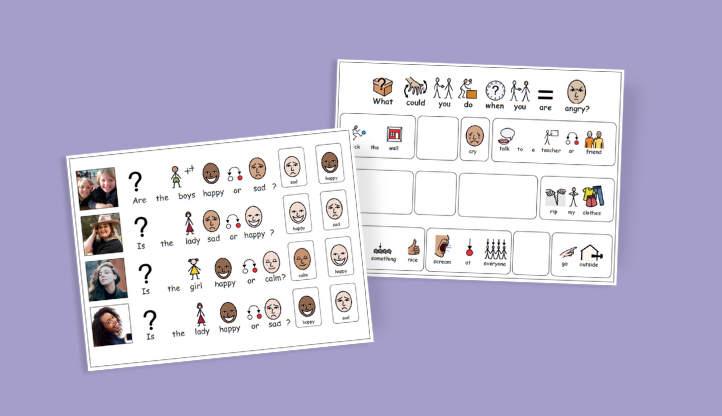- You are here:
- Home
- Success Stories
- Adapting Emotional Learning for SEND
Adapting Emotional Learning for SEND
How Widgit Symbols helped Zippy’s Friends for pupils with SEND improve emotional literacy





Zippy’s Friends for pupils with SEND used Widgit Symbols to support children with their coping and social skills, as a 2-year study by the University of Birmingham highlights a gap in support for children with learning disabilities.
Funded by the National Institute for Health and Care Research (NIHR) and conducted by the University of Birmingham, Zippy’s Friends – an emotional literacy programme used across mainstream schools – was recently adapted for pupils with SEND, in a two-year study highlighting the need for mental health support within special schools.
We are delighted that we were able to ask children with learning disabilities to tell us themselves about their mental health by means of an adapted questionnaire. This has not been done before in this type of research.
- Biza Stenfert Kroese, University of Birmingham
Featuring a variety of activities for teachers, brought to life by Widgit Symbols, the programme aims to improve emotional literacy and mental health among children aged 8-11 with learning disabilities. From coping strategies to self-expression and communicating emotions, the programme is also tailored to the specific needs of the class – with stories adapted to four different reading levels.


The resources are absolutely brilliant, and there is a good range of different activities which suit my class. Zippy’s rules are very relatable for the children, and the content fits in nicely with other things that we do in the school like Zones of Regulation and emotional coaching. The stories are also engaging, and children can relate to the characters and situations that are happening.
- Teacher
With five special schools taking part (53 pupils in total), teachers, parents, carers and pupils completed questionnaires to measure changes in children’s emotional literacy, including the ability to understand, express and manage their own feelings, and have an awareness of other people’s emotional needs; they were also interviewed about their experiences of taking part in the programme and/or the research.
Instead of having complete meltdowns about an unexplained feeling he had, he seemed more open to discussion about it. We used to get lots of tears when he’d keep it all to himself; he’d come home from school and say ‘this happened’ or ‘I told them this and no one listened’ or ‘I felt like this and I didn’t understand.’ But now he’s discussing it more within school and feels more comfortable discussing himself.
- Parent
The children who took part were also positive and enthusiastic about the programme. They could recall features of the activities, and enjoyed learning about Zippy’s Friends, as the study showed promise in improving emotional literacy and nurturing the mental health of children with learning disabilities.
Next Success Story - Welcome to the world’s first Symbol-Friendly museum
